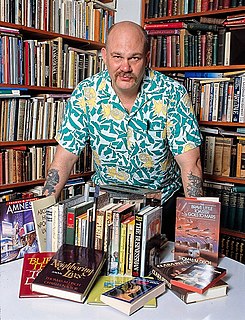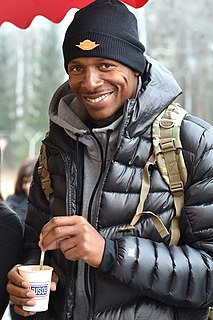A Quote by Lisa Randall
I do theoretical particle physics. We're trying to understand the most basic structure of matter. And the way you do that is you have to look at really small distances. And to get to small distances, you need high energies.
Related Quotes
In a small lab, if you make a mistake, you can go in the next day and fix it. But here, when you are committed to spending a hundred thousand or a million dollars, you can't fix it later. You need to have a system of checks and balances internally. In particle physics, that's just part of the structure.
When I began my physical studies [in Munich in 1874] and sought advice from my venerable teacher Philipp von Jolly...he portrayed to me physics as a highly developed, almost fully matured science...Possibly in one or another nook there would perhaps be a dust particle or a small bubble to be examined and classified, but the system as a whole stood there fairly secured, and theoretical physics approached visibly that degree of perfection which, for example, geometry has had already for centuries.
It is going to be necessary that everything that happens in a finite volume of space and time would have to be analyzable with a finite number of logical operations. The present theory of physics is not that way, apparently. It allows space to go down into infinitesimal distances, wavelengths to get infinitely great, terms to be summed in infinite order, and so forth; and therefore, if this proposition [that physics is computer-simulatable] is right, physical law is wrong.
The standard model of particle physics says that the universe consists of a very small number of particles, 12, and a very small number of forces, four. If we're correct about those 12 particles and those four forces and understand how they interact, properly, we have the recipe for baking up a universe.
The one thing that I cannot live without when I'm traveling is a small container of tea tree oil. It's not the most glamorous thing, but if you get a cut, a mosquito bite, a small breakout, no matter what it is, it's my little cure-all. It's inexpensive, it's small enough to carry on, and I bring it with me all the time.
The world of science lives fairly comfortably with paradox. We know that light is a wave, and also that light is a particle. The discoveries made in the infinitely small world of particle physics indicate randomness and chance, and I do not find it any more difficult to live with the paradox of a universe of randomness and chance and a universe of pattern and purpose than I do with light as a wave and light as a particle. Living with contradiction is nothing new to the human being.
We're all like the little sailor. From the harbors we hear the strains of accordions and the murky soapy noises of the docks, from the mountains we receive the dish of silence that the shepherds eat, but we don't hear more than our own distances. And what distances without end and without doors and without mountains!




































